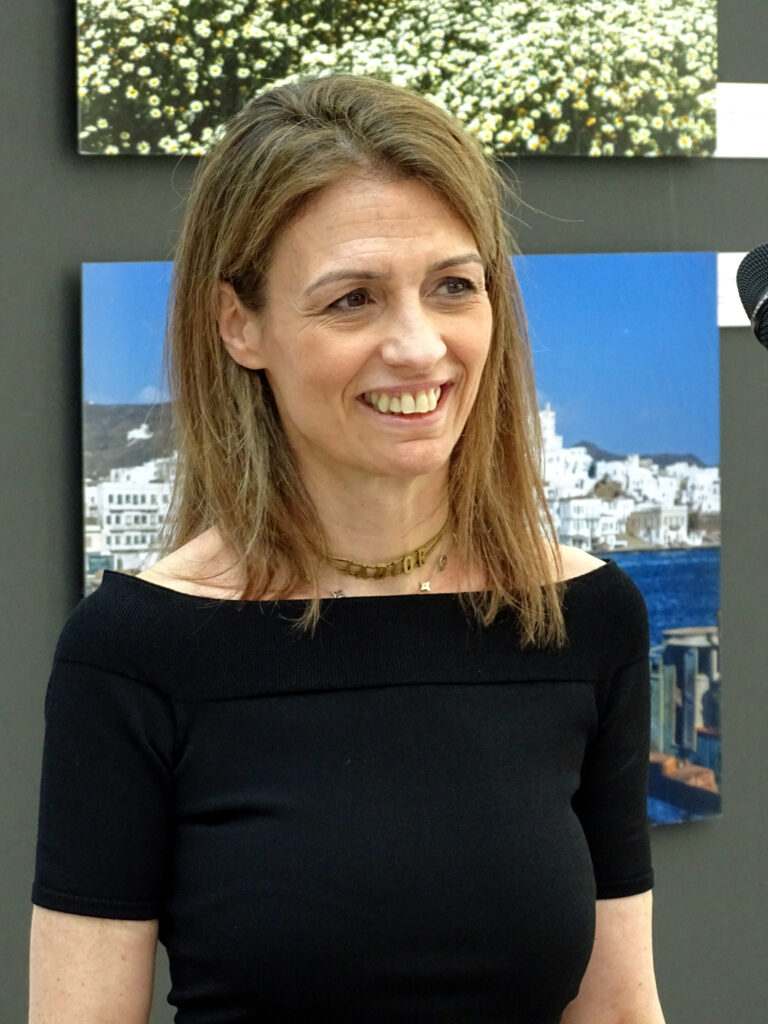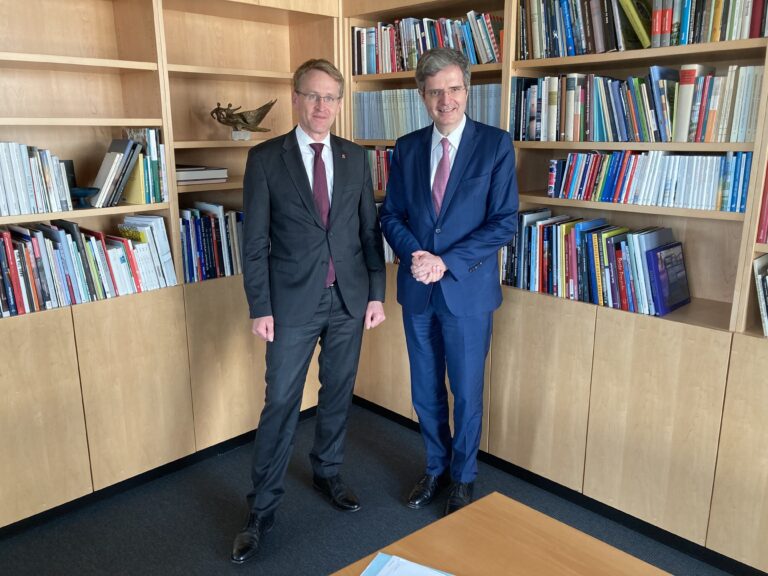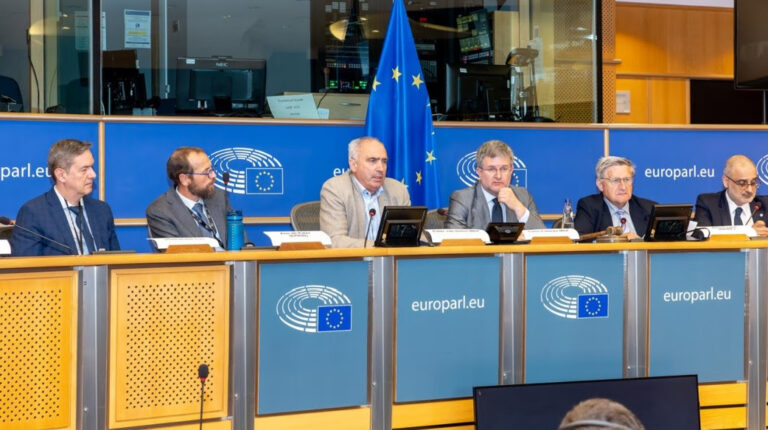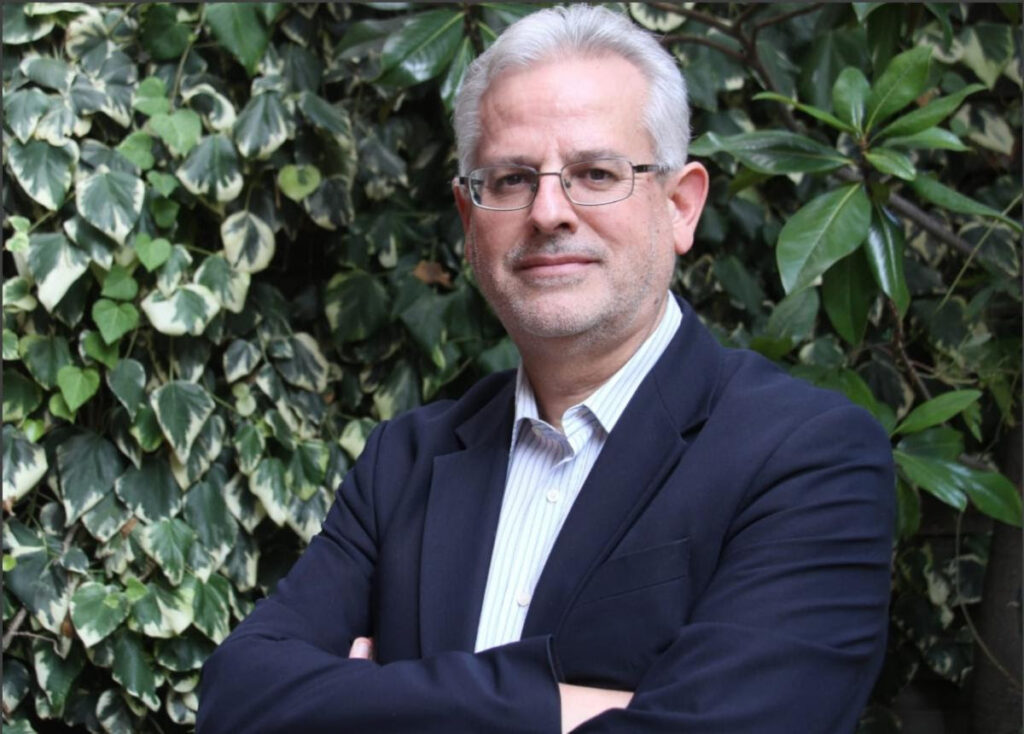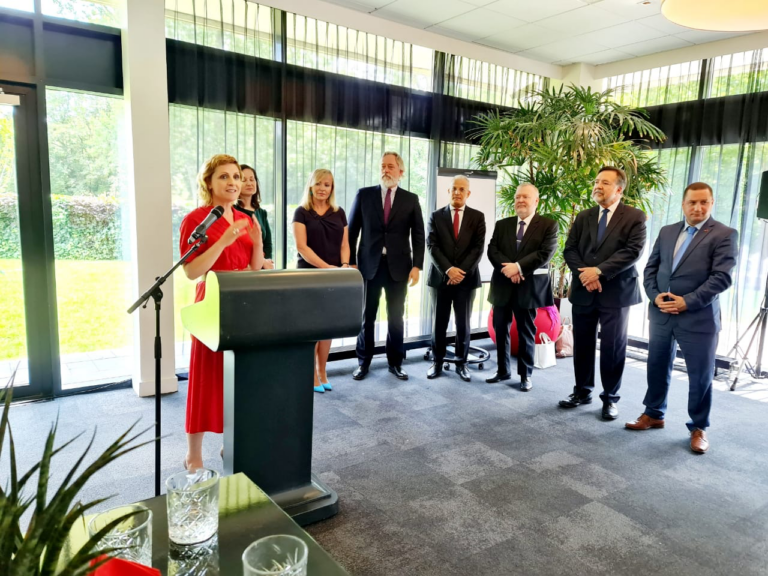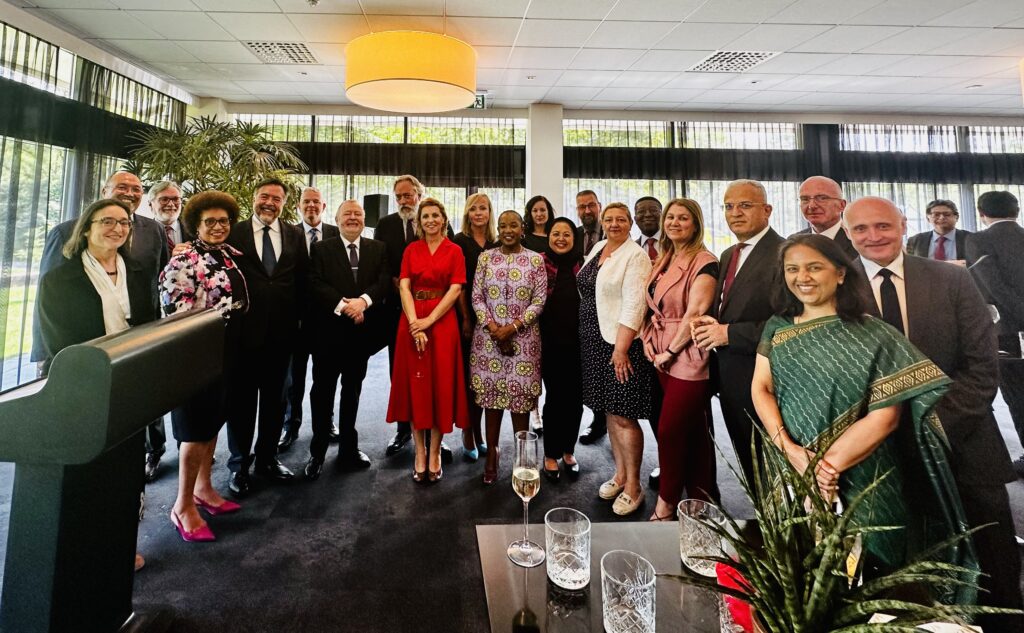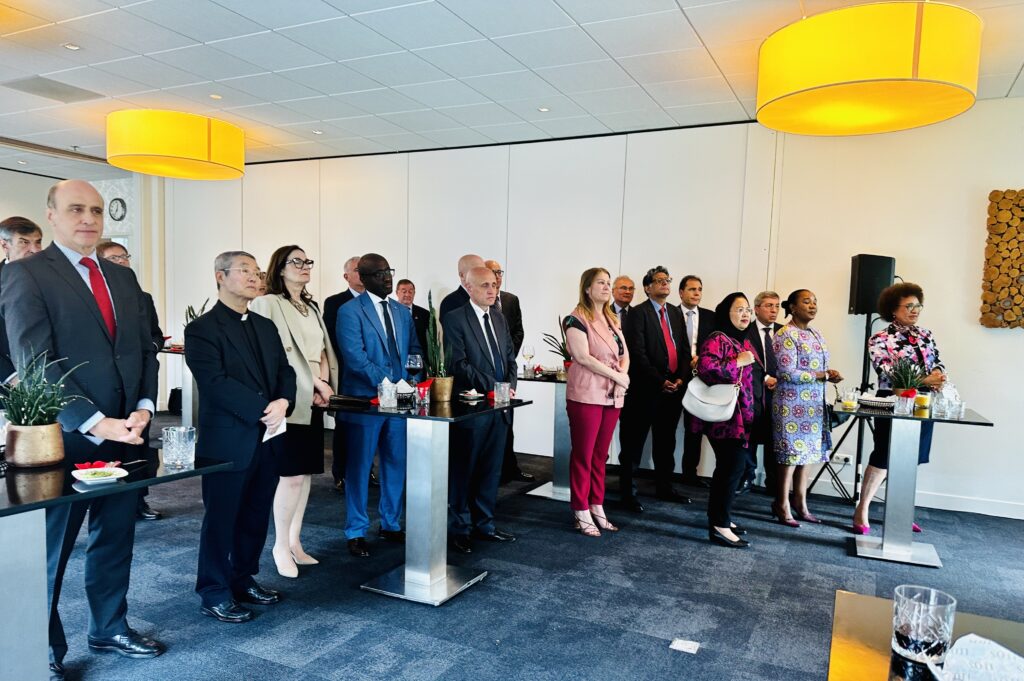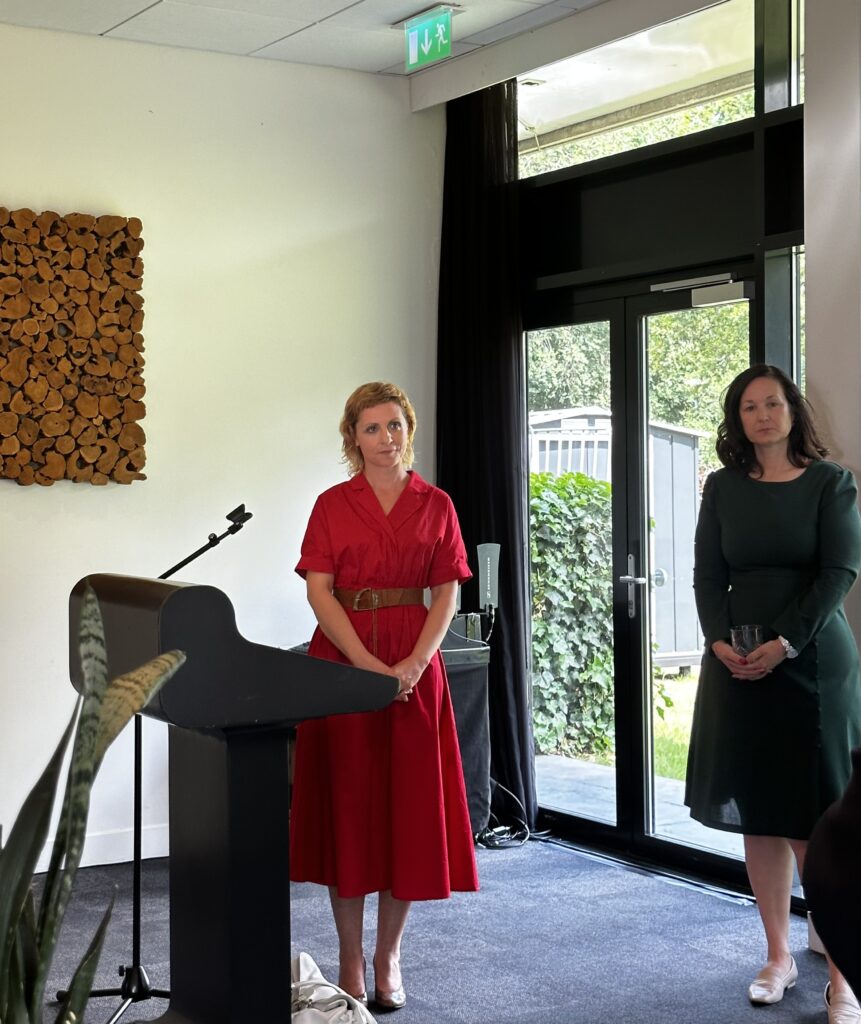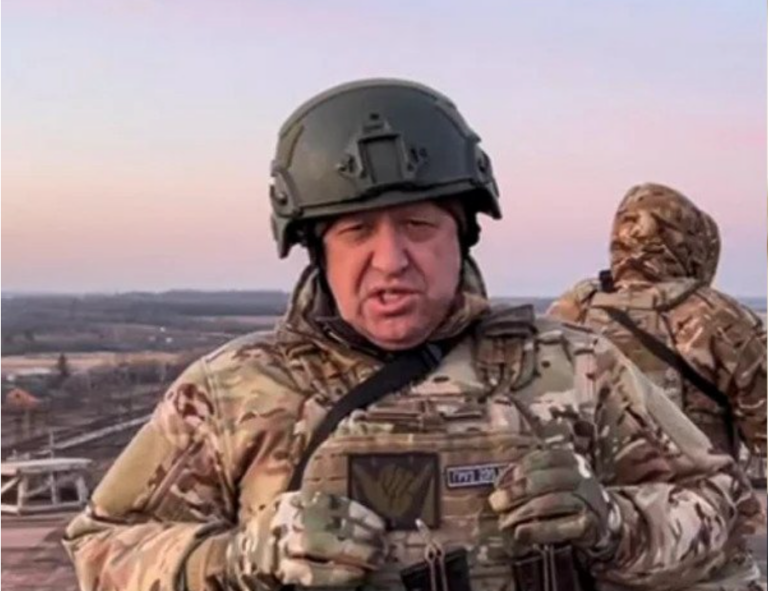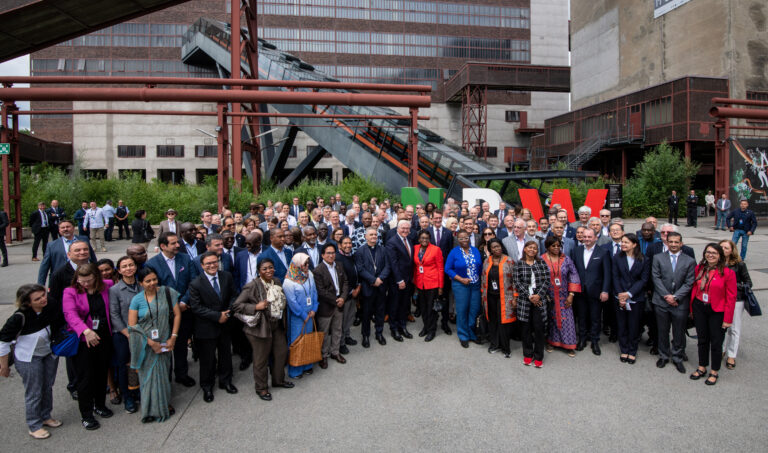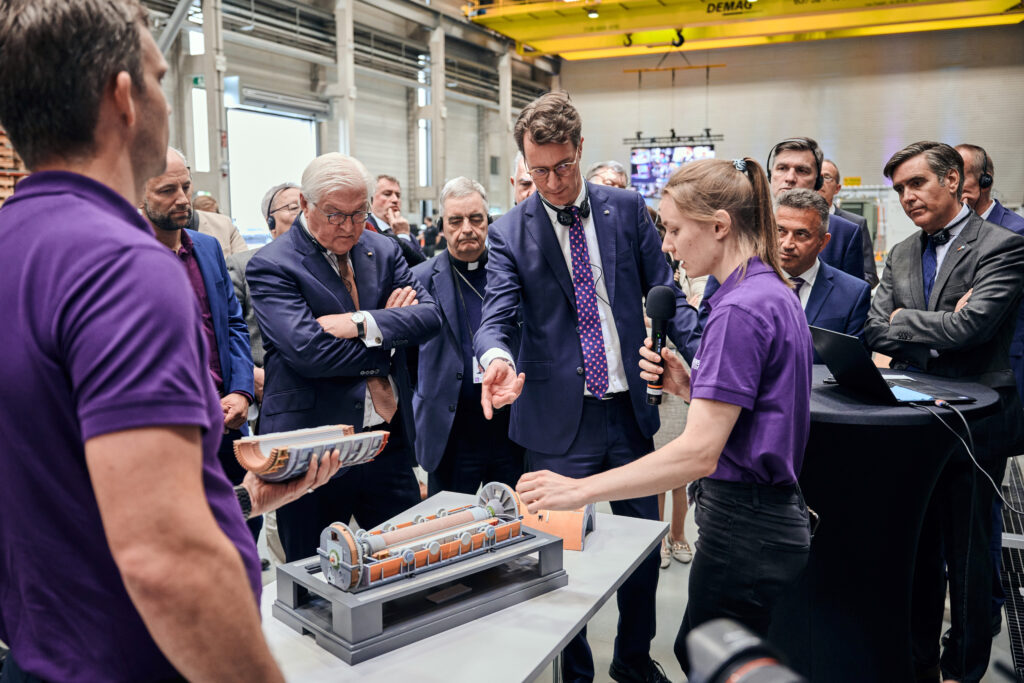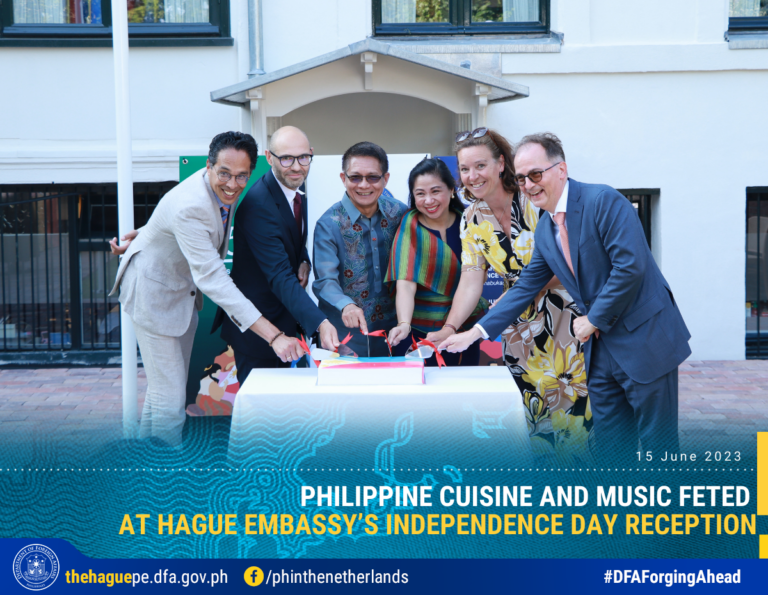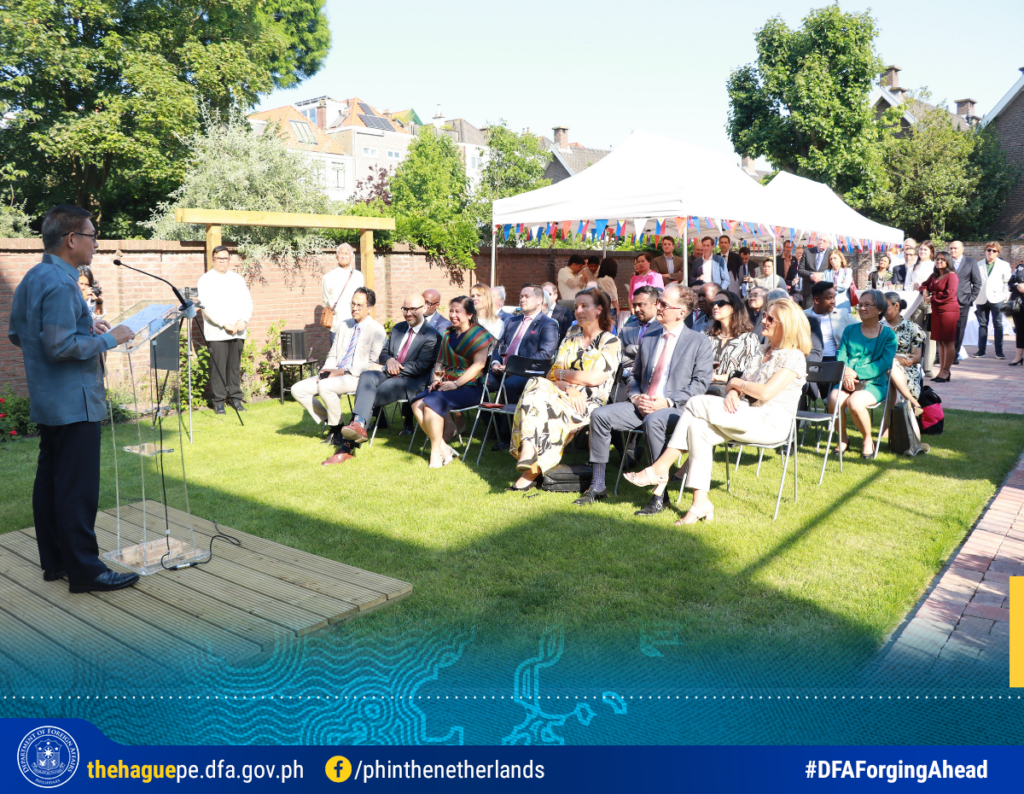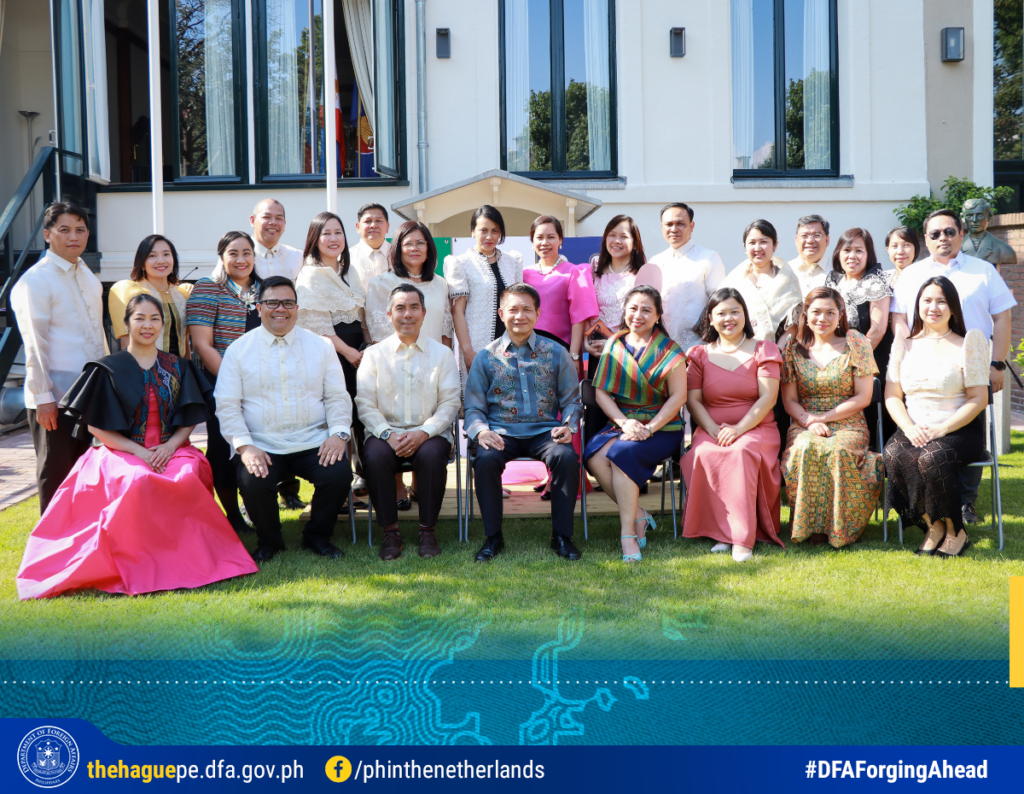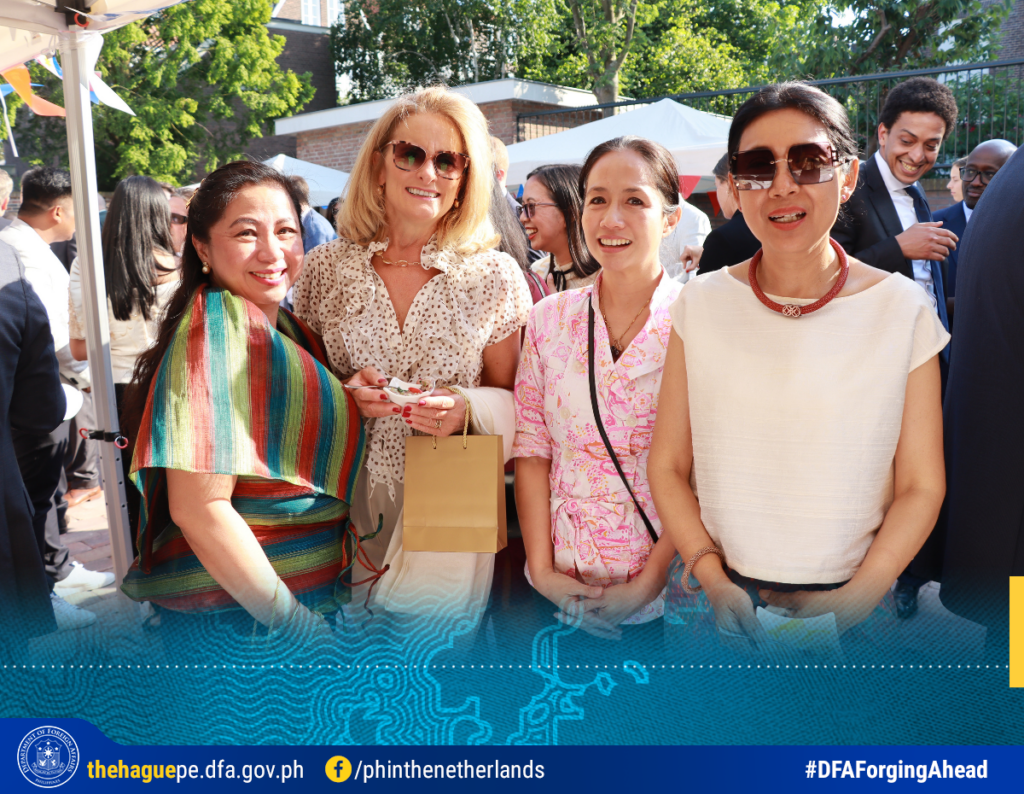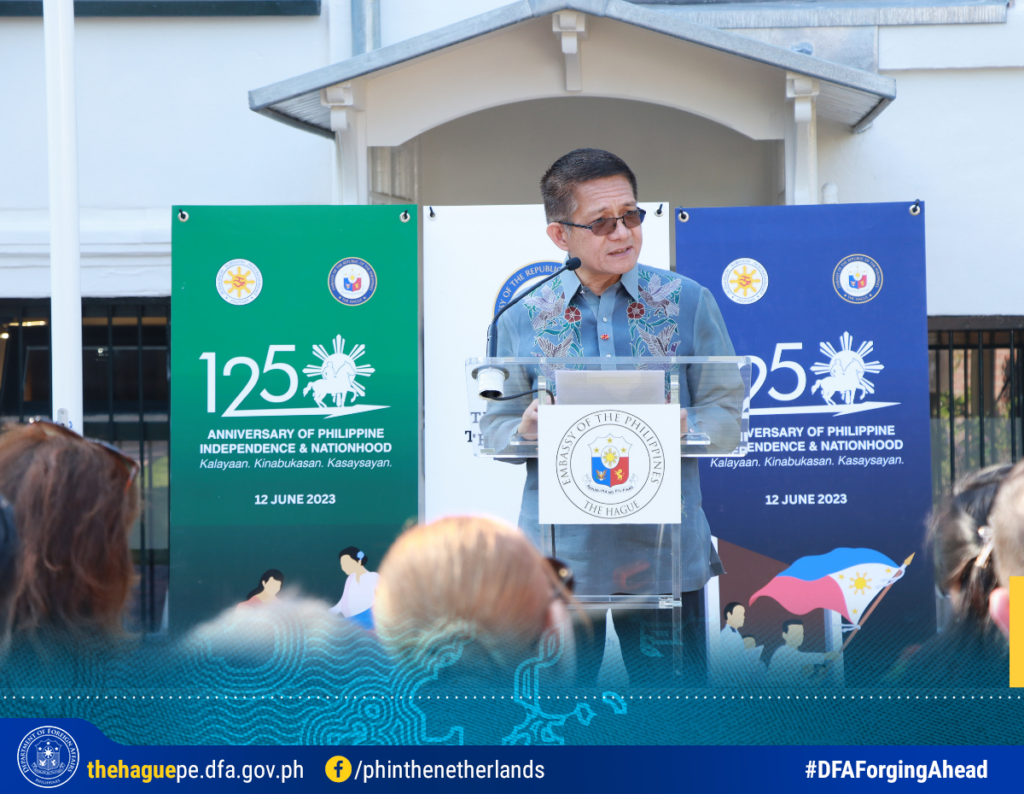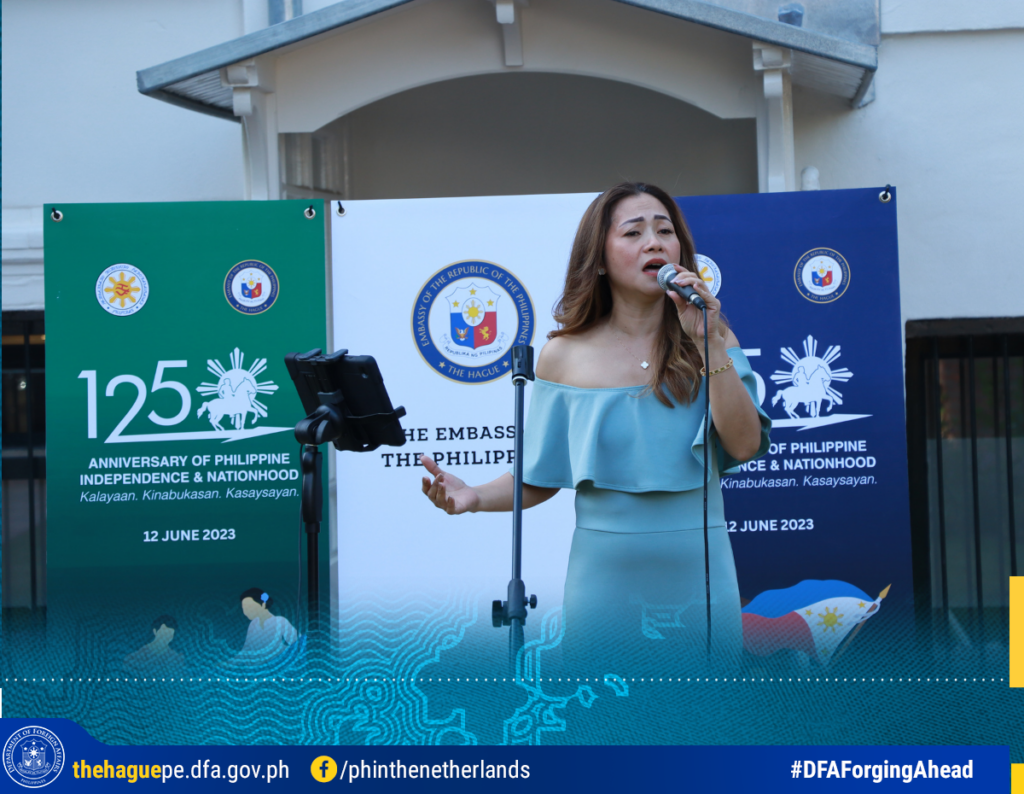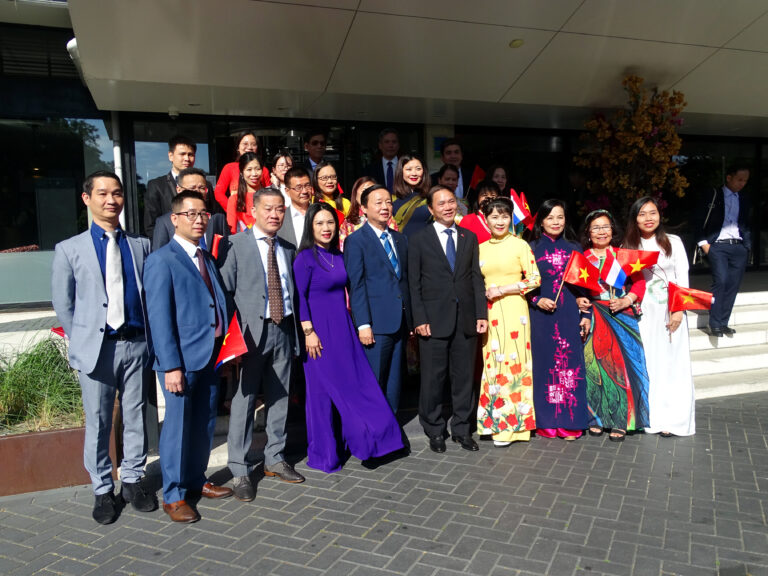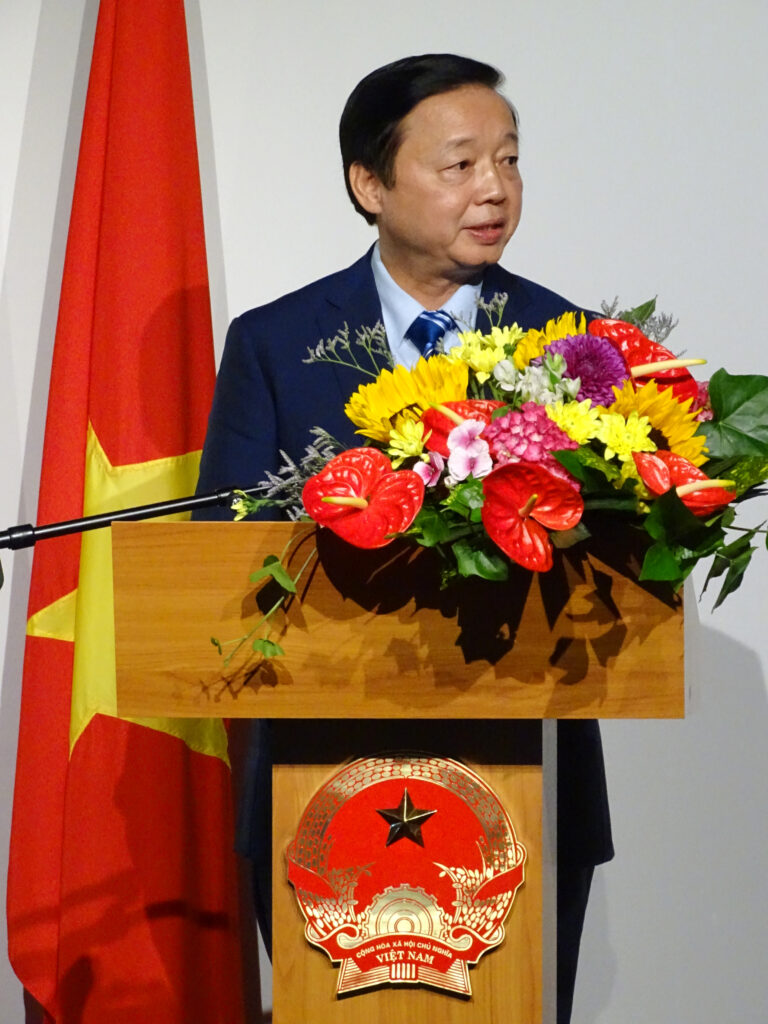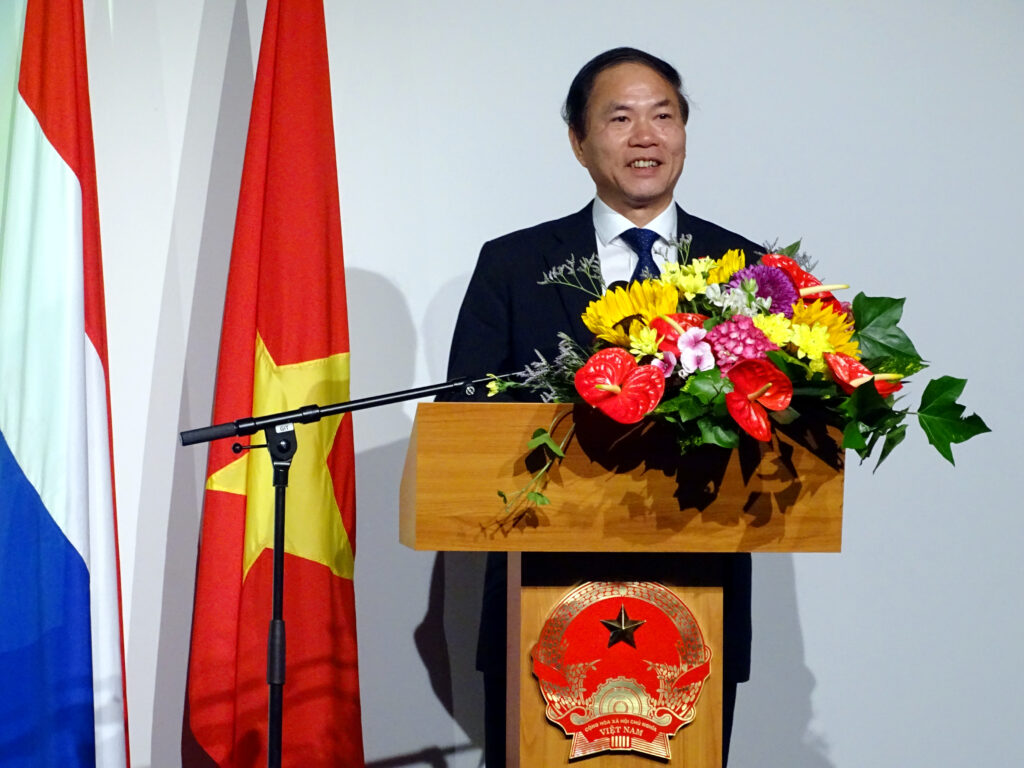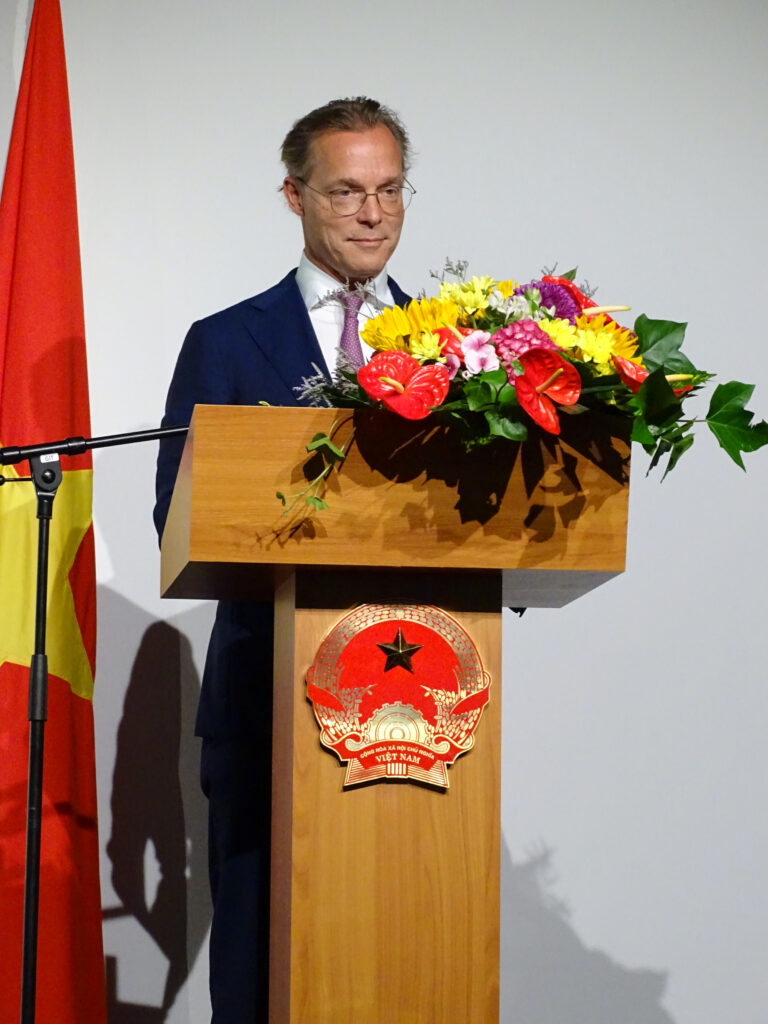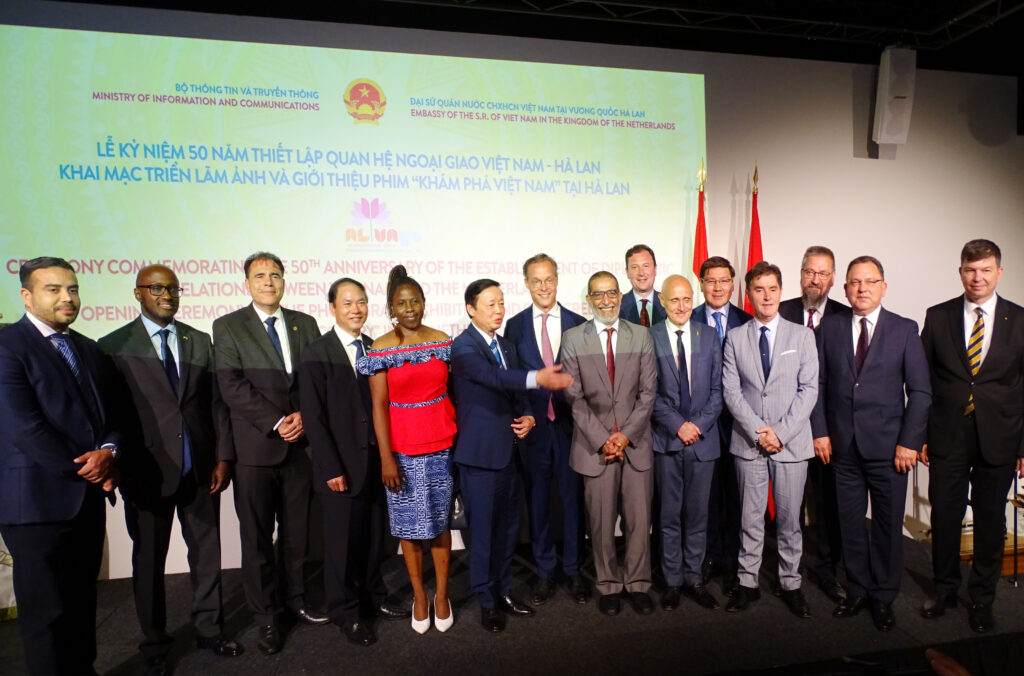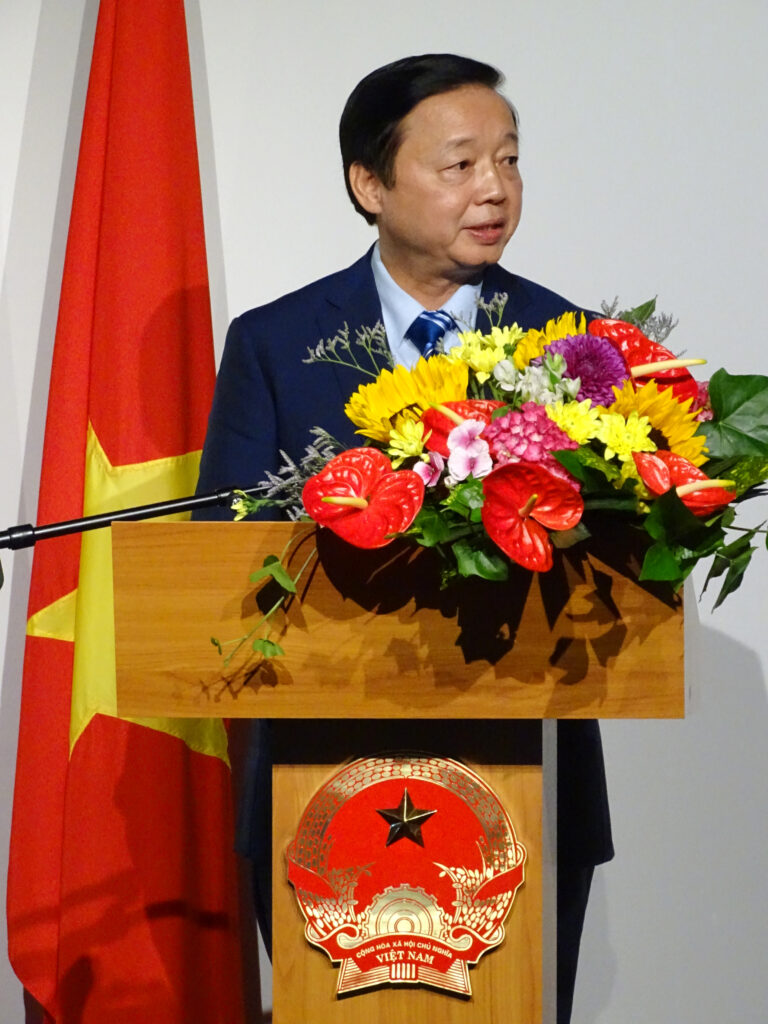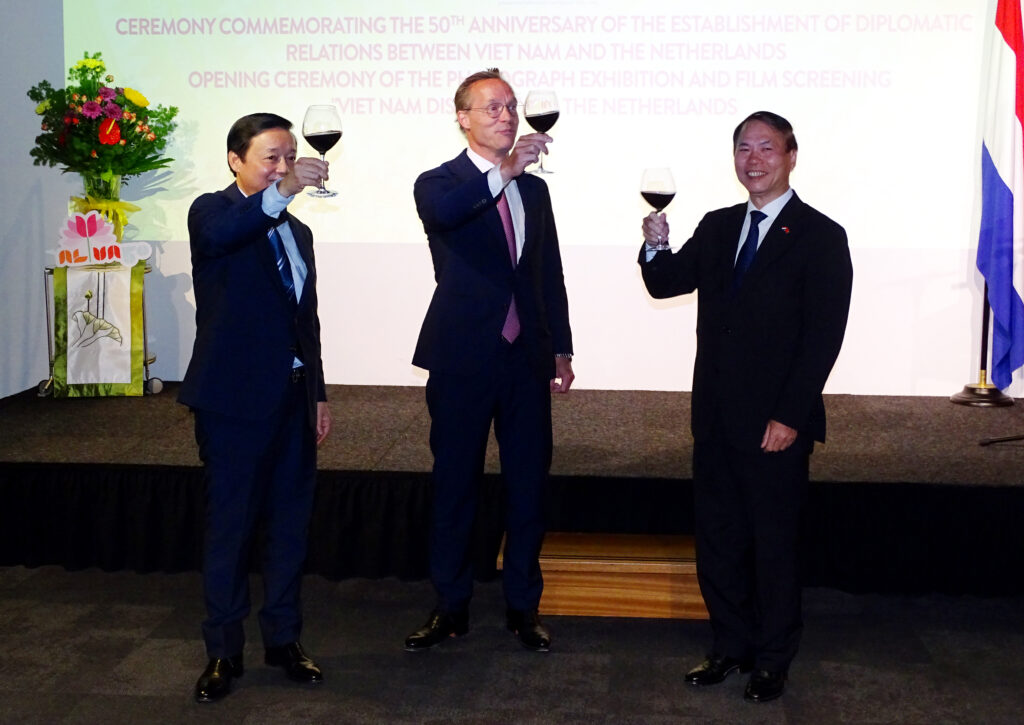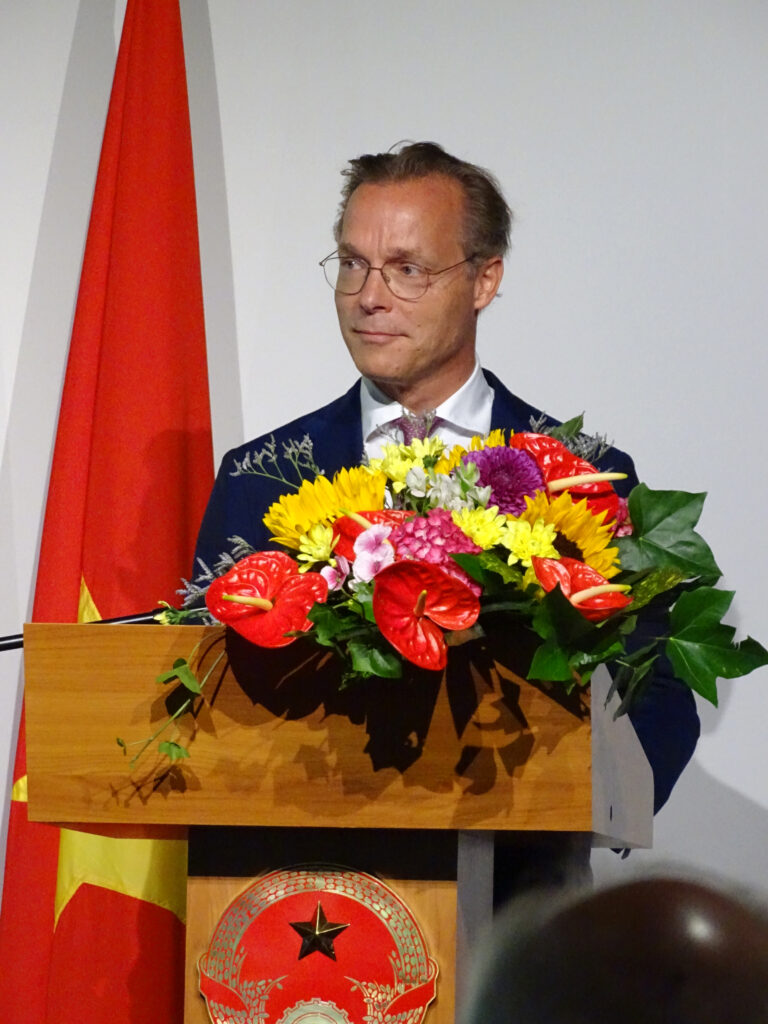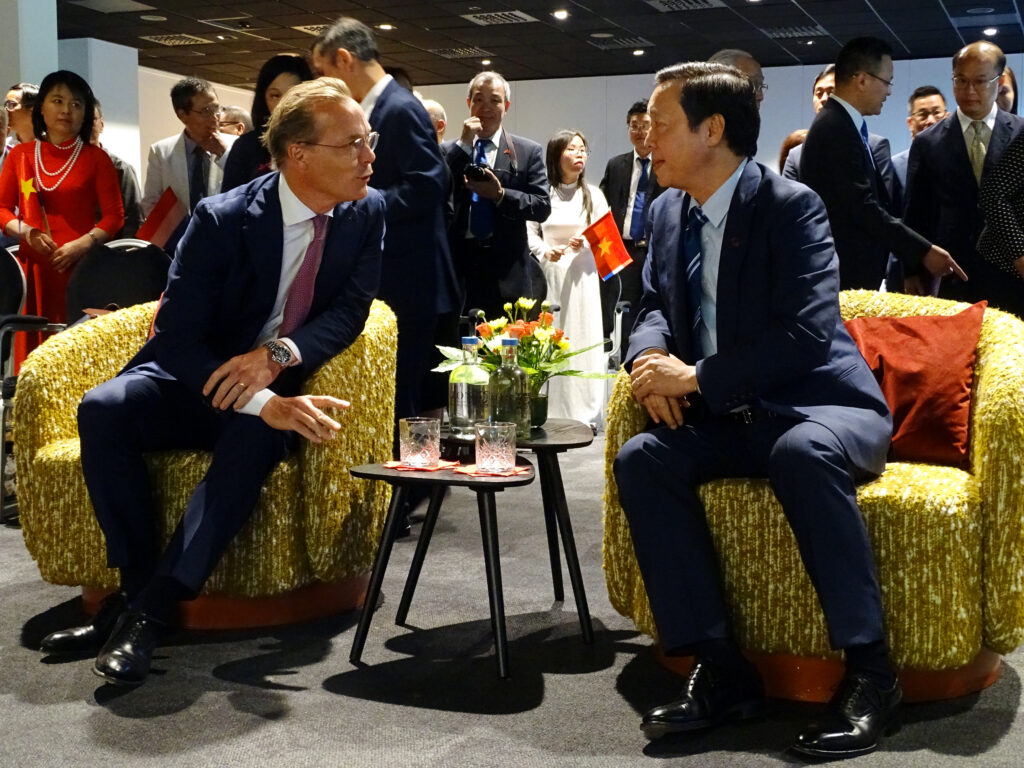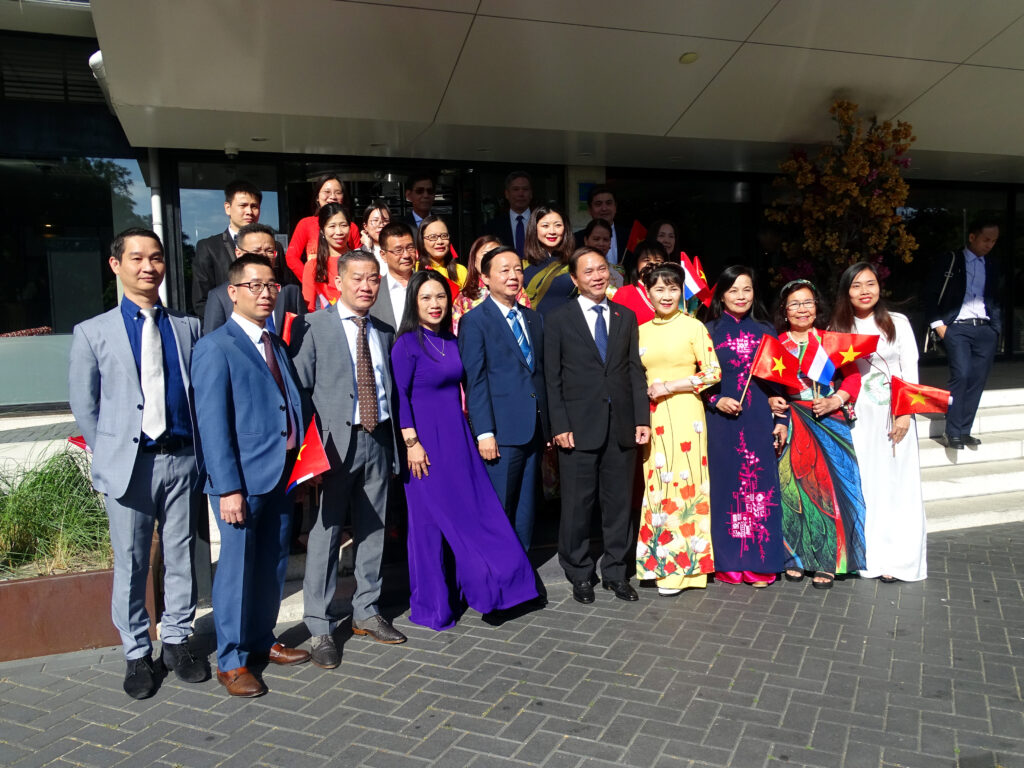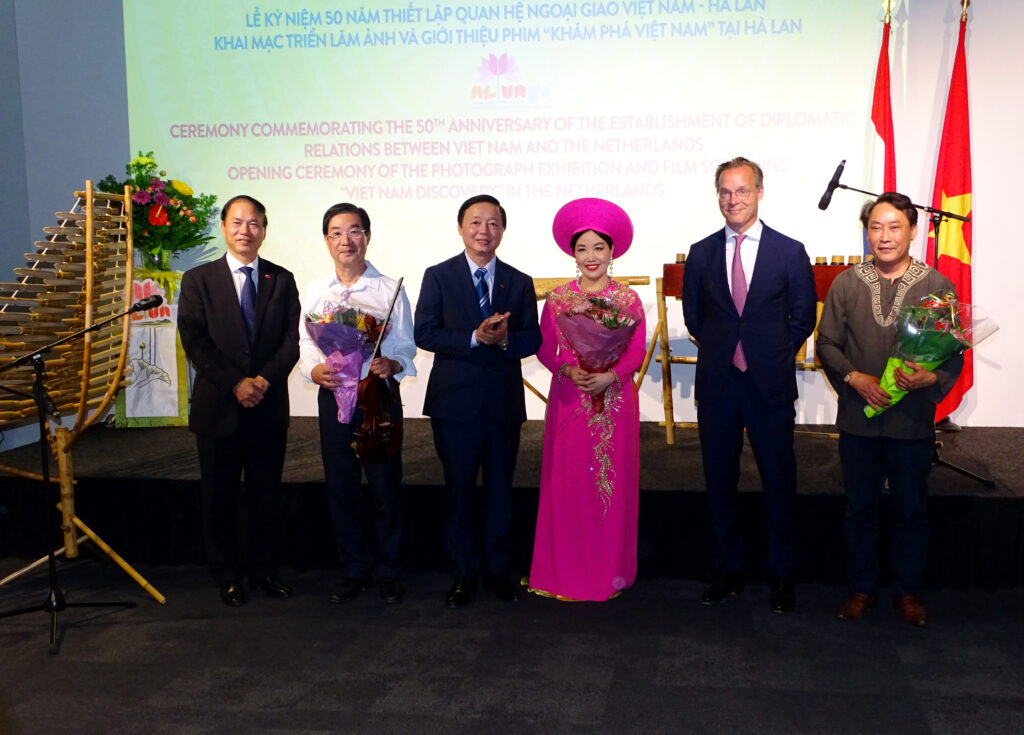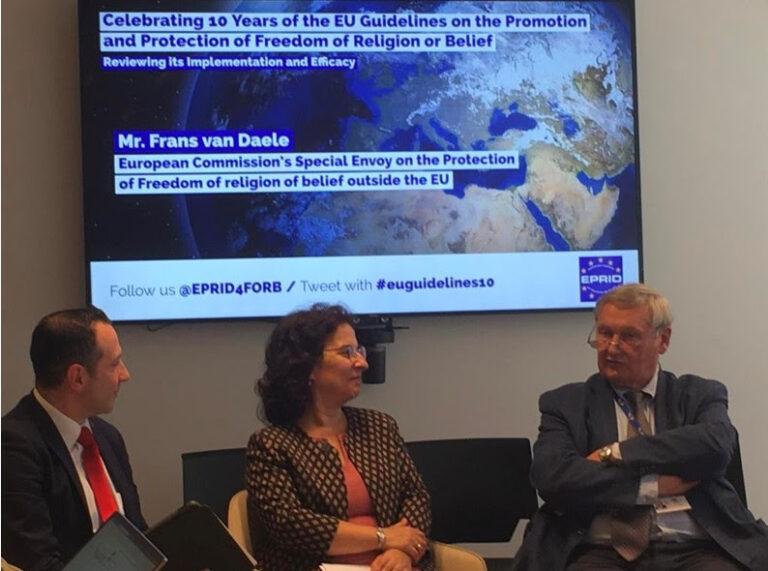On June 12, 2023, the embassy of Greece in The Hague, together with Diplomat Magazine, hosted the inauguration event of a beautiful photo exhibition entitled ‘Greece, Images of an Enchanted Land‘, by world-renowned photographer Robert McCabe. The Embassy presented the pictures that the American photographer took in Greece from the 50’s at the Atrium City Hall in The Hague.
H.E. Ms. Caterina Ghini, Ambassador of Greece to the Netherlands welcomed all the participants and officially launched the exhibition.
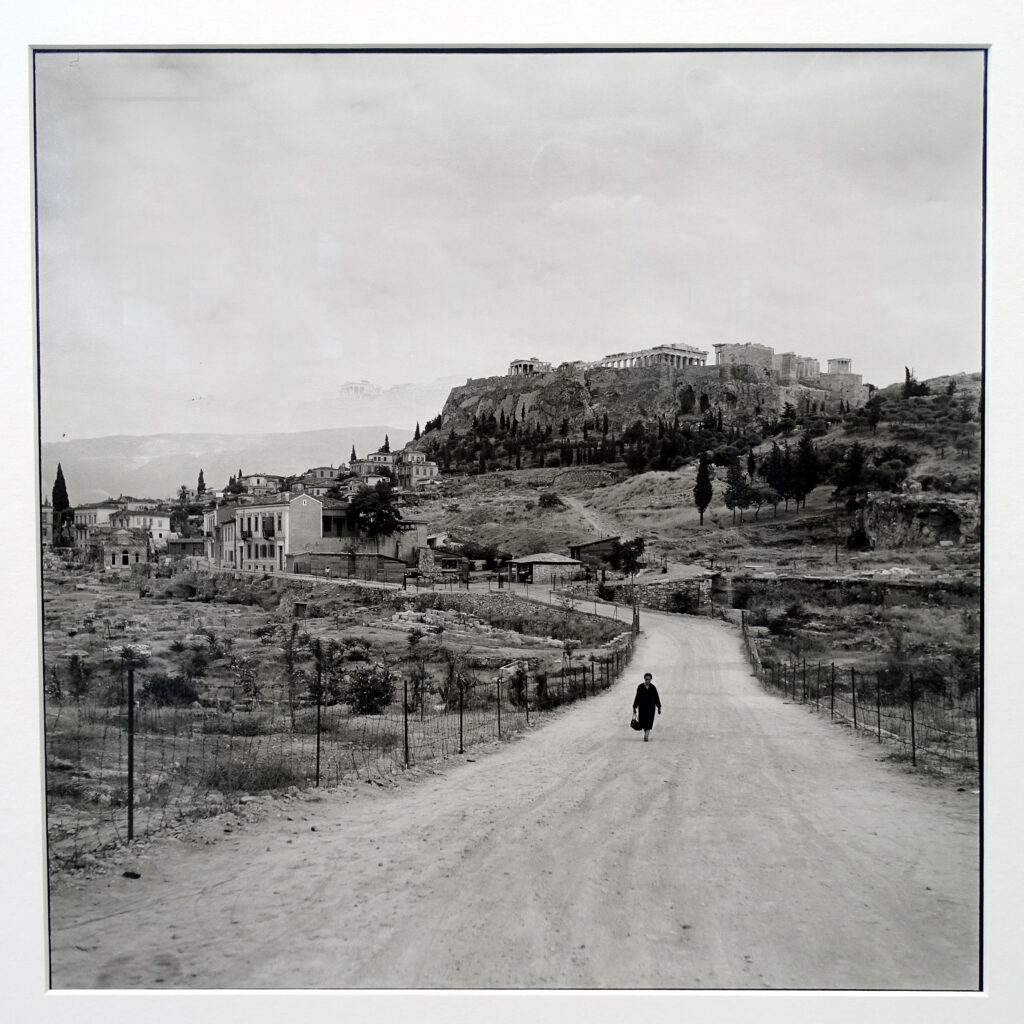
In her opening speech she mentioned: ‘Robert McCabe made his first visit to Greece in 1954. He was instantly captivated by the country, preserving his impressions within the clicks of his camera’s shutter button, capturing moments of history in iconic images.
His first trip gave him the opportunity to experience the islands before they became “destinations”. Robert is a contemporary wanderer: in modern times he continues the age-old tradition of foreign travellers in the country. Influenced by his classical studies at Princeton University, his work constitutes a photographic archive of Greece in the 1950s and 1960s.
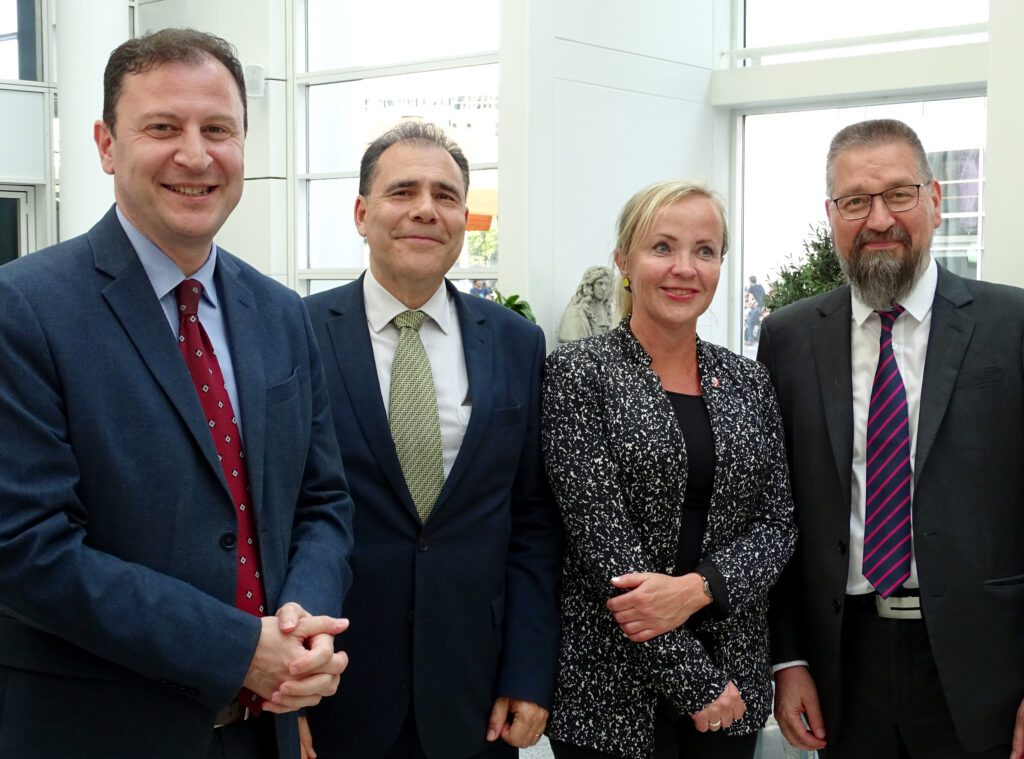
The exhibition of the renowned photographer includes two sections: the first section illustrates the aspects of daily life in Greece in the 50s and 60s: seascapes, festivals, women’s and men’s occupations, work at sea. The second section presents some archaeological sites. Most of these sites have a long history, some as religious centres, others as commercial hubs and some with strategic military importance.
As is the case with many iconic works, the photographs can be interpreted in many ways. Besides their undoubted quality of documentation of an era, Mc Cabe’s photographs are a work of art. They are characterized by realism, but also by a rare aesthetic quality’.
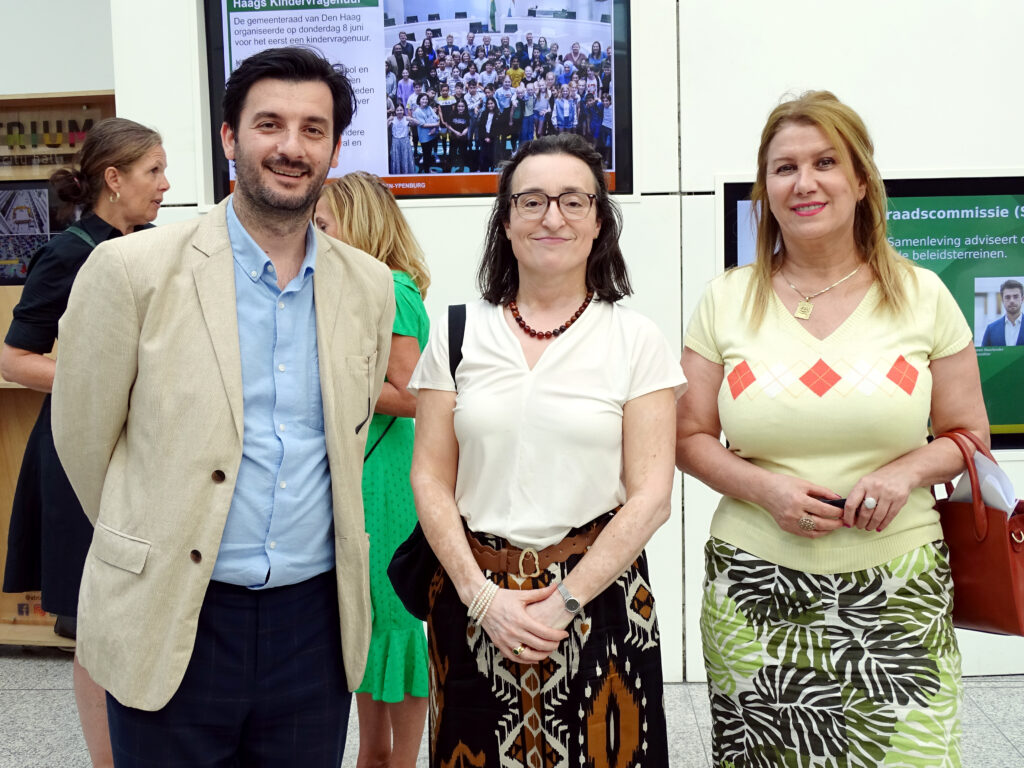
As the photographer could not attend the event, Frederiek Lommen, a journalist, a writer, a Greece connoisseur and a publisher who traveled to Greece in May to meet McCabe, further presented the artist and his art work.
In her eloquent speech, she said: ‘I had the pleasure and the privilege of meeting Robert McCabe in person a few weeks ago, while I was in Athens. We had a very interesting conversation about his work and about Greece in general. We share a passion for Greece, which goes back several decades. As a short introduction to this exhibition, I will tell you today what I learned from that marvelous conversation.
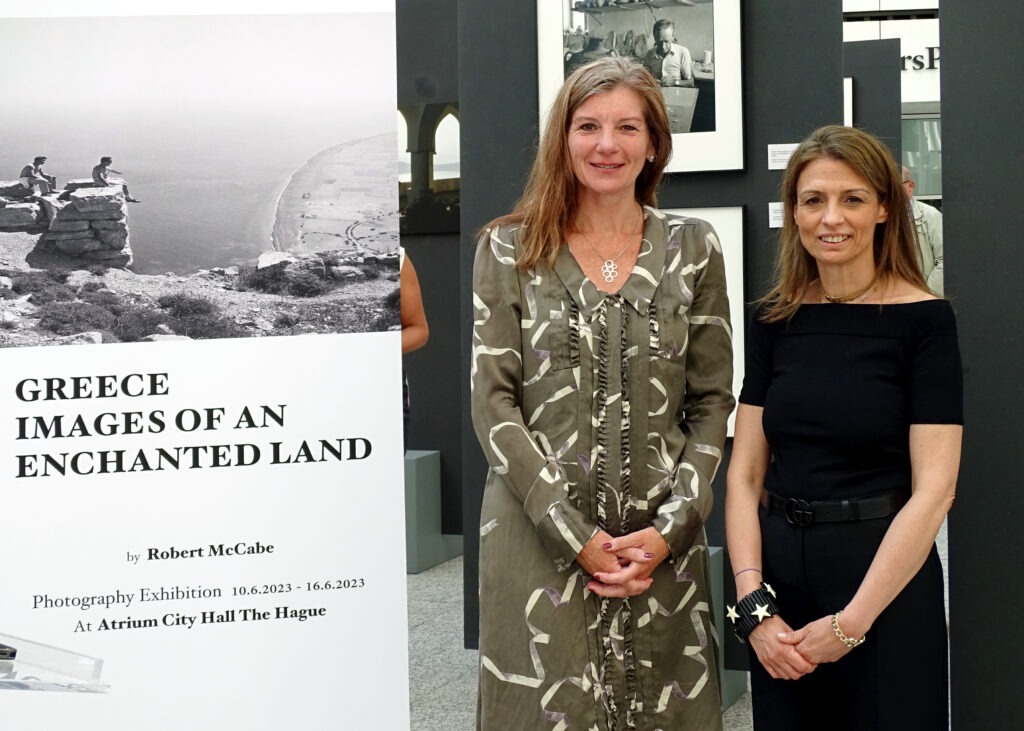
Robert McCabe was born in Chicago in 1934 but grew up close to New York City. His father was working for a newspaper. When Robert was four years old, he received his first camera, as a present. It was a Kodak Baby Brownie. In the beginning, the little boy was interested in news. He gathered images of hurricanes, drownings, and car accidents. But after a while, his interests shifted to people and landscapes. In 1954, a life changing event occurred.
His older brother Charles, studying at Princeton, got an invitation from a Greek friend, to spend two weeks in Greece. Robert was lucky, his brother asked him to join. The two boys went by cargo ship to Le Havre, in France. This trip of course took several weeks. In France, they travelled to Paris, and from there they took the train to Venice, where they got on a boat again to Piraeus and finally arrived in Athens.
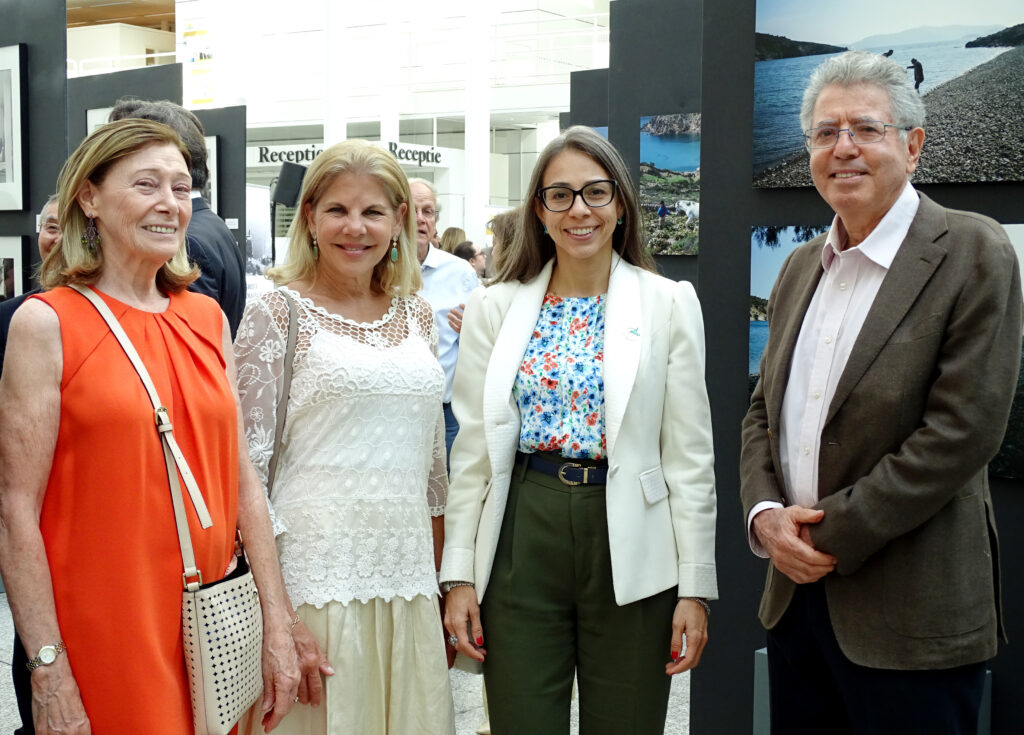
Robert’s strongest memory of those first days in Athens is of how much ‘at home’ he felt. There were no traffic lights, just a few cars and only one policeman. Athens was basically like a big village, not the city with millions of inhabitants which it is today. The boys had also planned to travel to Egypt and Italy. They wanted to do a version of the classical ‘Grand Tour’, in the footsteps of Lord Byron, Goethe and many other famous romantic artists and poets. But none of that happened. They cancelled all their plans and decided to stay in Greece a bit longer.
“It was love at first sight”, Robert explained to me. Because of his love for photography, his parents had given him a new camera for this trip (a Rolleiflex, a high-end, German made camera). So, of course he took a lot of pictures of this exotic country.
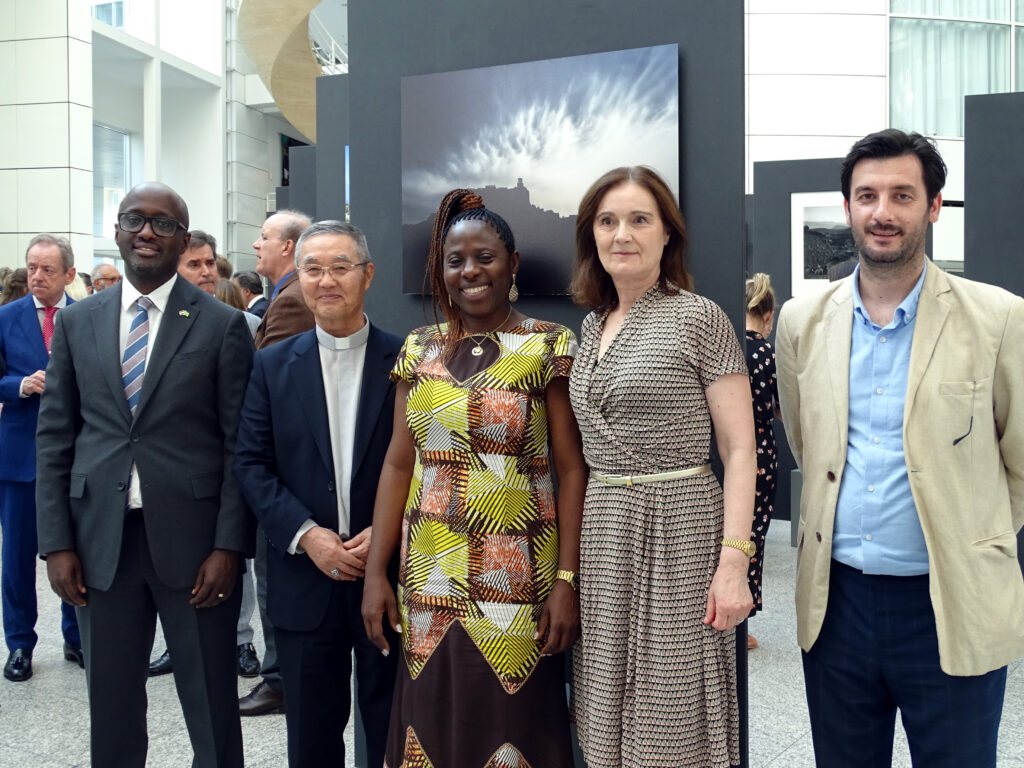
Even to this day, he told me, he still regrets not bringing more film with him on that first trip. The love for Greece was so intense and strong that back home, Robert decided to switch from English literature to Classics. But the university wouldn’t allow this because he didn’t know any Latin or Greek. So he remained at the English department but decided to write his final thesis on Lord Byron and Greece. That was his way to spend every minute on Greek history and culture. So, that’s how it all began.
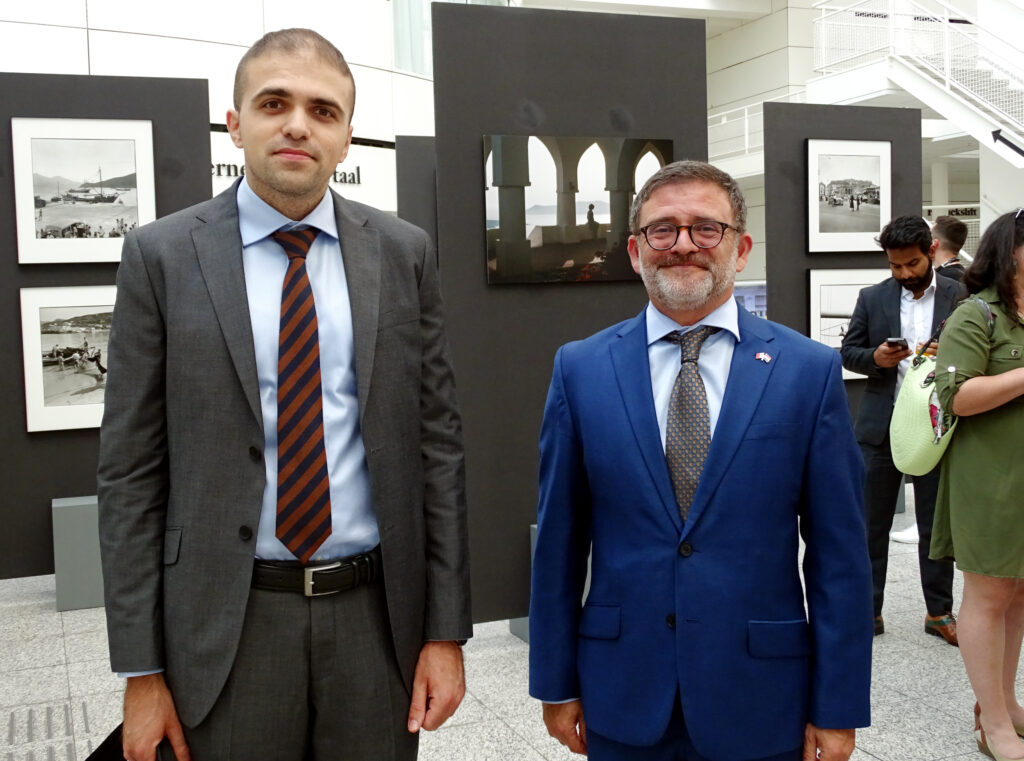
His photographs of that first trip to Greece were exhibited the same year at the library of Princeton University. Needless to say, he kept on returning to Greece each summer. In those years, he sometimes felt like an explorer in Greece, discovering a new civilization. Often together with his brother, they tried to visit as many places and islands as possible.
They preferred searching for places without any tourists. For example, when they first arrived in Ios – now a very popular island in the summer months – they saw four French tourists when they got off the boat. Too crowded, they decided, and so they left.
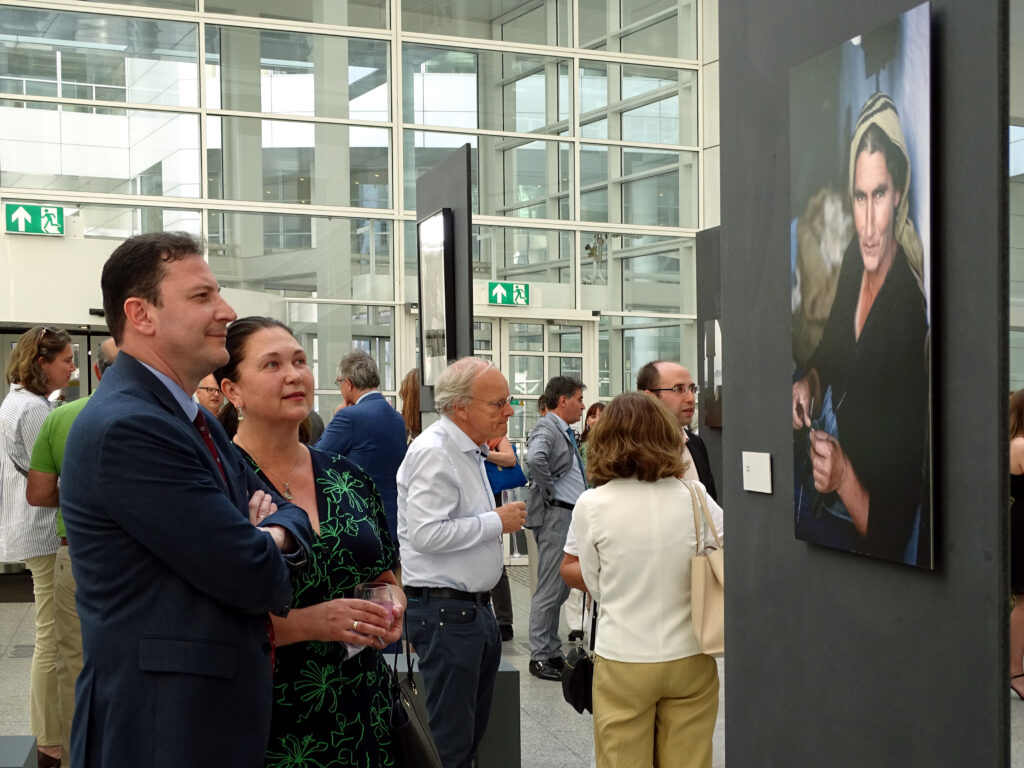
One day, someone from the National Geographic Society saw some of his pictures and asked him to travel to the Cyclades and take pictures for an already planned article about this group of islands. And that of course, was a crucial moment in his career. Over the years, McCabe became a true ambassador for Greece, showing the world the things that made him fall in love with the country so deeply, through his exhibitions and publications.
The bond with Greece became even stronger due to his marriage in 1963 to a Greek girl Constantina, or Dina, his lifelong partner.
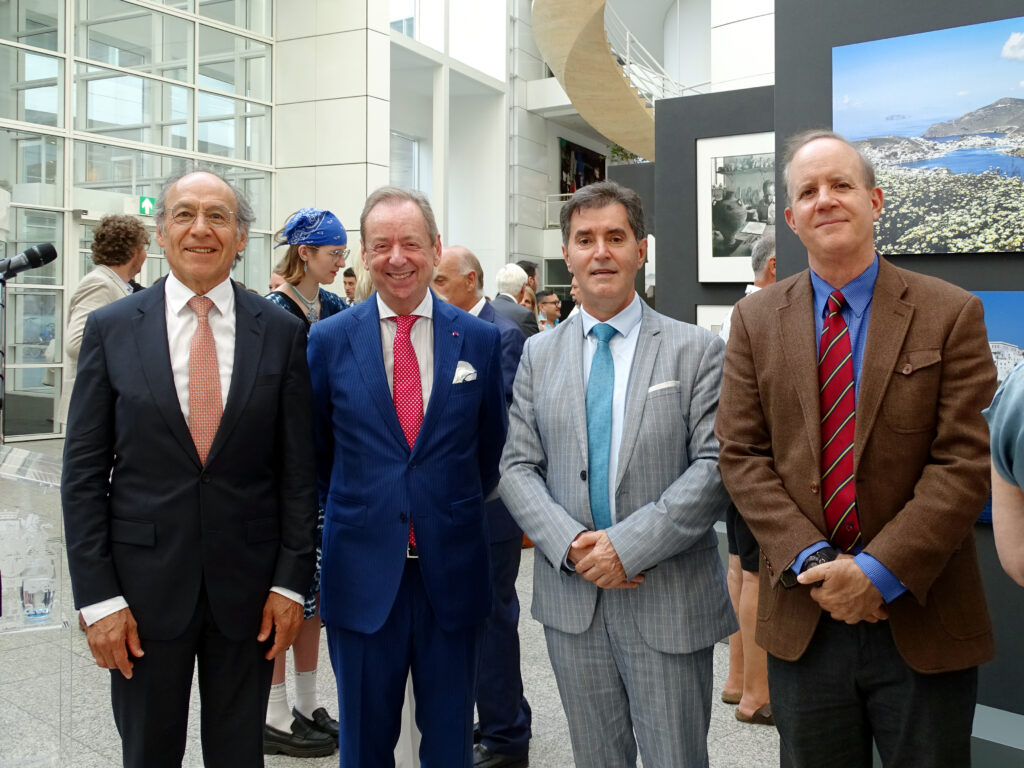
His photographs of Greece are of great value, for a couple of reasons. One reason is that a lot of pictures were taken long before mass tourism started. Back in the fifties, sixties, Greece was still unspoiled. People on the islands lived from fishing, and not from tourism. Robert could easily visit all the antiquities. He could come close, walk through the Parthenon, and touch the pillars. Now, we have to keep our distance, of course, to preserve the precious stone and marble.
A second reason, why – in my opinion – his work is of high value, is that he is really interested in people. In his photographs, we see the marble worker doing his job in the ancient temple, the lady on the dirt road close to the Acropolis, the barefoot children playing in the fields, the fisherman busy with his small boat. In a way, by including people in his images, Robert has given us a visual anthropological record of Greece. His work is a sort of time capsule.
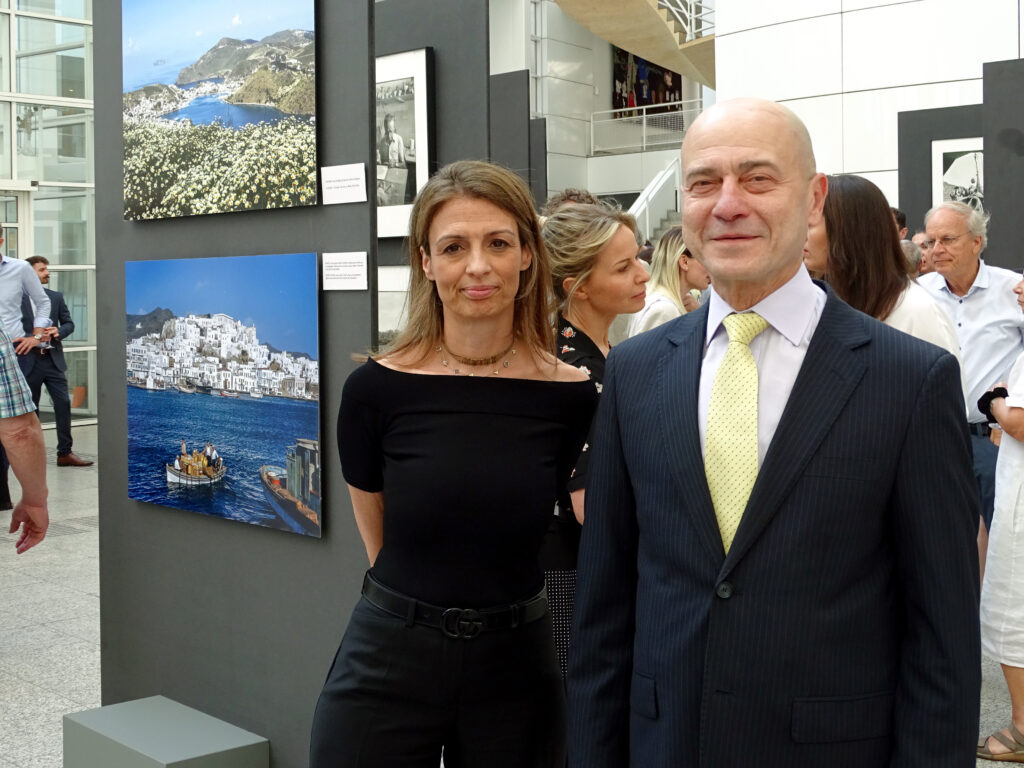
And last but not least, his pictures are extremely beautiful. The love for the country, and his profound knowledge, are reflected in his pictures. He knows the Greek light, the typical light that you will not find anywhere else. And he has mastered the art of capturing it.
Although I love his photographs and studied one of his magnificent books (he has published more than 17 until now), his work also has a strong hint of sadness, melancholy I would say. The photographs give us a last glimpse of a Greece which probably is vanishing.
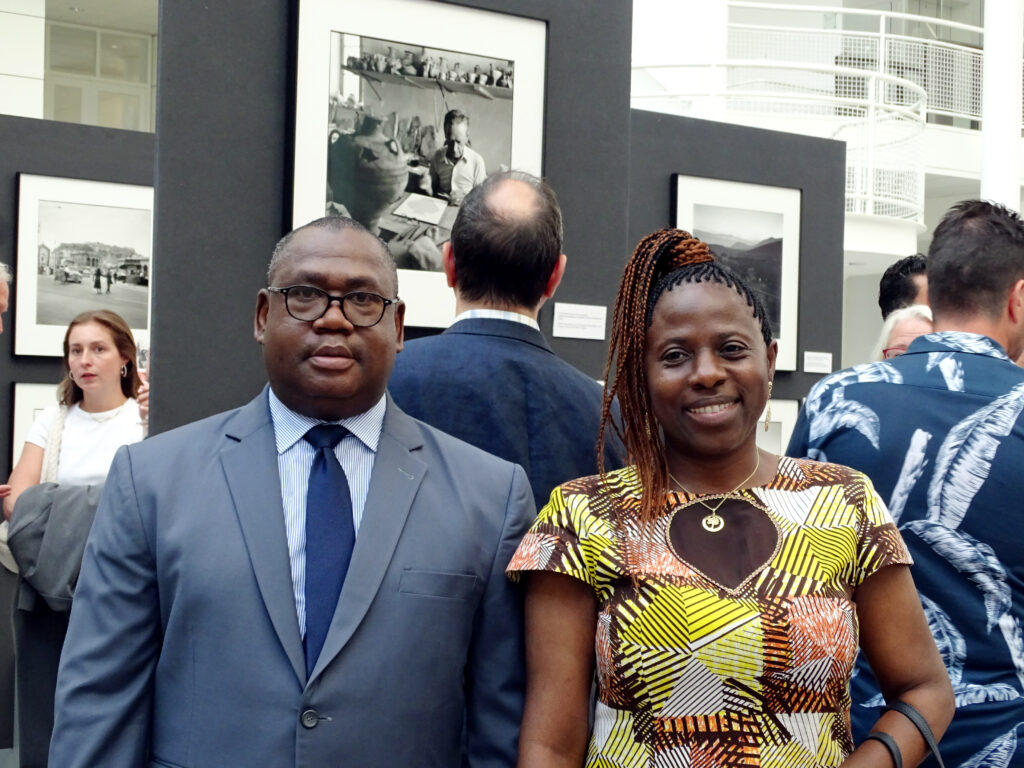
Greece has rapidly changed over the last decades. The need to move forward, the urge to escape from poverty in the fifties, after the war; all these things have changed Greece.
Modern buildings are filling the beautiful landscape. The donkey has been replaced by the car. Quiet fishing villages have turned into a hustle of tourist shops, hotels and bars. Tourism is of course both a blessing and a curse. But luckily for us, Robert recorded this vanishing Greece.
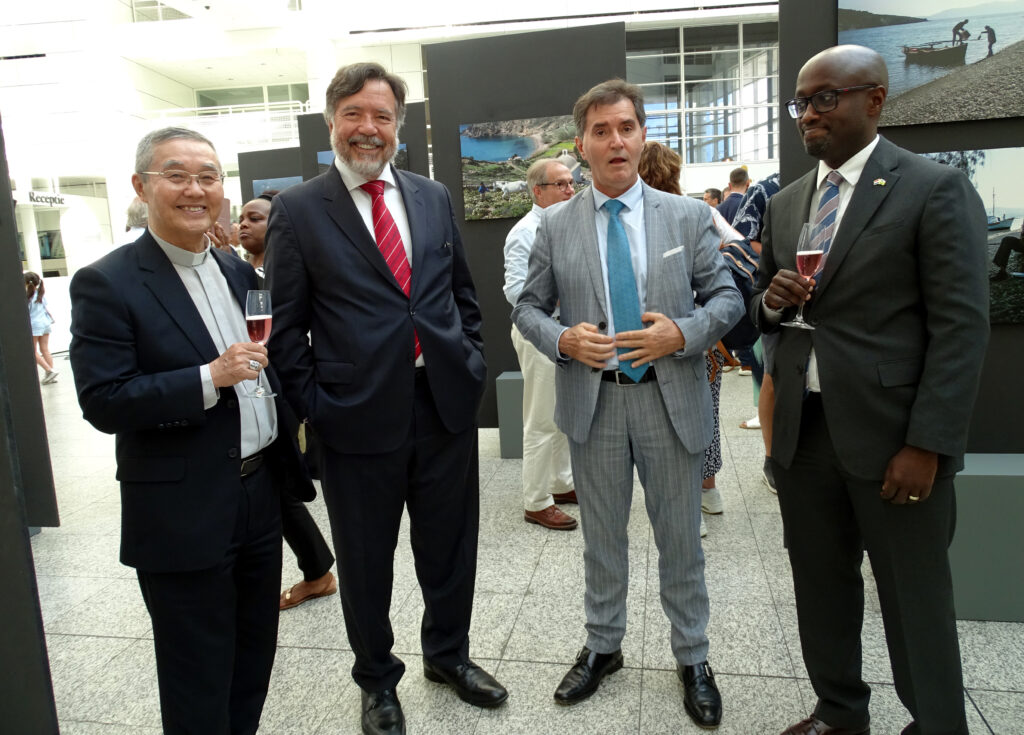
Fortunately, some places remain almost untouched and unspoiled: small islands you can only reach by boat or remote villages high up in the mountains. As Robert told me, and I agree with him, there are still some regions that are beautiful and quiet. There are still islands where the landscape is almost identical to the way it was centuries ago. Threshing floors, donkeys, vineyards, and fishermen with boats can still be found’.
At the end of her speech, Ms. Lommen cordially invited everyone to discover all those marvelous places and to visit Greece.
The speeches were followed by an animated reception. The event, attended by ambassadors, academics, and people from the art, business and political sphere, Greek nationals and friends of Greece, was a memorable experience for everyone.
The exhibition remained open for a week at the Atrium, in The Hague and thousands of people had the chance to see it.

